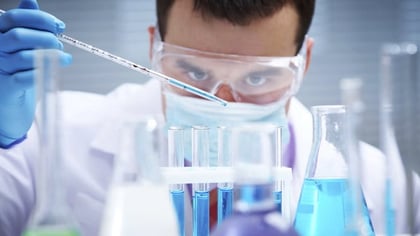The fight against life-threatening infections suffered another blow when one of the world’s biggest drugmakers waved the white flag.
Novartis AG is the latest drug giant to end antibacterial and antiviral research, joining the likes of AstraZeneca PLC Sanofi, Allergan PLC and Medicines Co. GlaxoSmithKline PLC has put some antibiotics assets under review.
The pullback revives concern about a world in which routine infections again become lethal as bugs develop resistance to existing drugs. Sales of new antibiotics are too low for big pharma to recoup its investments, and public measures to encourage more activity aren’t moving the needle.
“The market is broken,” said David Shlaes, a former pharmaceutical executive and consultant.
(Related: The Spanish Flu Centennial: A Look at Influenza’s Continuing Pandemic Risk)
“We’re at a point now where resistance is moving a lot faster than our ability to provide new antibiotics. This is just another in a long string of really bad news.”
The latest retreat comes after a brief period when industry leaders appeared willing to take a risk on the field. Merck & Co. spent $8.4 billion on antibiotics leader Cubist in 2014. Novartis, Glaxo and other companies pledged at the World Economic Forum in 2016 to fight the threat of drug-resistant bacteria. The U.S. government offered longer patent protection and subsidies, potentially worth hundreds of millions of dollars, to companies willing to invest.
Not Selling
But the new antibiotics just haven’t sold. Only five of the 16 brand-name antimicrobials approved from 2000 through last year were able to generate sales of more than $100 million annually, according to a study from Duke University’s Margolis Center for Health Policy. That’s a pittance compared with the billions of dollars for new cancer treatments.
A long-lasting failure of the antibiotic pipeline could be a risk factor for life insurers: One fear always at the back of the minds of life insurance risk managers is the threat of a deadly, contagious disease caused by a bacterial infection that cannot be treated with conventional antibiotics.
A rise of bacteria that cannot be controlled with antibiotics could also lead to a dramatic increase in mortality rates for what are now thought to be routine surgical procedures.
The problem for drugmakers is that new antibiotics are usually held in reserve and are not used unless they’re needed because patients develop resistance to an older medicine. Even the most expensive antibiotics, at around $1,000 a day, are cheap compared with a cancer medicine that will be given for months instead of a few days or weeks.
Meanwhile, developing new antibiotics is becoming more expensive, said Gabrielle Breugelmans, director of research for the Access to Medicine Foundation. The roughly 275 research projects going on around the world might yield two or three medicines, she said.









 July 13, 2018 at 09:04 PM
July 13, 2018 at 09:04 PM








